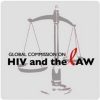Bangkok, Thailand – Public health responses that are inclusive of all segments of society, particularly the most vulnerable populations, are crucial to achieving the Sustainable Development Goals.
This was one of the key messages coming out of the 2017 Prince Mahidol Award Conference, a global public health gathering held from 29 January – 3 February 2017 in Bangkok, Thailand.
The conference was attended by nearly 900 participants from 72 countries and included government representatives, academia, civil society, medical professionals, development partners, the private sector and the media. It was opened by Her Royal Highness Princess Maha Chakri Sirindhorn under the theme of ‘Addressing the health of vulnerable populations for an inclusive society’.
The conference was hosted by the Prince Mahidol Award Foundation, the Thai Ministry of Public Health, Mahidol University and other global partners. UNDP was an official co-host of the conference, along with WHO, the World Bank, UNFPA, UNAIDS, IOM, the Global Fund to Fight AIDS, Tuberculosis and Malaria, USAID, JICA, the China Medical Board, Rockefeller Foundation, Chatham House and the Gates Foundation.
UNDP hosted and participated in a number of sessions during the week-long event, highlighting the importance of addressing the social, economic and environmental determinants of health, and reducing the inequalities and exclusion that drive poor health and development outcomes.
Mandeep Dhaliwal, Director of the HIV, Health and Development Group at UNDP, chaired a plenary on the first day of the Conference focusing on the population groups that are considered to be most vulnerable, and how best to identify their priority health needs.
“It’s clear that if development is to be sustainable then it must become more equitable,” said Ms. Dhaliwal. “To make advances on the health of vulnerable groups, there is a need for a greater effort to reach those who are left furthest behind, for deeper cooperation across all sectors and levels, and for a renewed focus on addressing the root causes of the economic, social and environmental determinants of health.”
On 2 February, UNDP launched a joint report with the Thai National Health Security Office and the Thai Ministry of Public Health, showcasing the experience of Thailand in creating an equitable health care system that provides universal access to life-saving treatment for people living with HIV. The report, titled The Journey of Universal Access to Antiretroviral Treatment in Thailand, is a collection of articles by Thai public health experts and advocates sharing insights and practical lessons to inform policy makers and development practitioners working to address the HIV epidemic, with a focus on equity and pro-poor policies.
The report was launched by Dr. Suchada Chinaworpong, Head of the HIV division at the National Health Security Office, Dr. Sumet Ongwandee, Director of the Bureau of AIDS, TB and STIs, Ministry of Public Health, Nadia Rasheed, Team Leader of the HIV, Health and Development team at UNDP Bangkok Regional Hub, Wisoot Tantinan, Team Leader of Democratic Governance at UNDP Thailand, and Kazuyuki Uji, Policy Specialist at UNDP Bangkok Regional Hub.
The Access and Delivery Partnership (ADP) – a UNDP-led collaboration with the WHO Special Programme for Research and Training in Tropical Diseases and PATH – convened a pre-conference meeting on enhancing linkages between health research and development, innovation and access. The meeting brought together 40 experts from a variety of disciplines and technical backgrounds to address effective access and delivery of new health technologies for TB, malaria and neglected tropical diseases.
“Marginalized populations in low and middle income countries are disproportionally burdened by TB, malaria and neglected tropical diseases, and are often excluded from accessing appropriate diagnosis and treatment,” said Cecilia Oh, Programme Advisor of ADP at UNDP Bangkok Regional Hub. “Promoting concrete linkages between innovation, access and delivery of health technologies is vital towards ensuring equitable health outcomes for vulnerable communities.”
The key findings and recommendations of the recently concluded UN Secretary-General’s High-level Panel on Access to Medicines were presented by Tenu Avafia, Team Leader on Human Rights, Law and Treatment Access at UNDP, at a session titled ‘Access to Medicines: How to Fix the Broken System’. He shared the panel’s proposed solutions to address the incoherencies that exist among international human rights, trade, intellectual property rights and public health objectives.
UNDP also organized a session highlighting the practical experiences that can be taken to tackle social exclusion through integrated, interdisciplinary interventions. The session was moderated by Doug Webb, Team Leader on Health and Innovative Financing at UNDP, and featured a presentation on addressing social, economic and environmental determinants of health by Olga Atroshchanka, Programme Analyst at UNDP Belarus. Kelvin Khow of WHO China, highlighted joint research with UNDP on measuring health, social and economic costs of tobacco use in China, especially on poor households.
Edmund Settle, Policy Advisor at UNDP Bangkok Regional Hub presented the Lesbian, Gay, Bisexual, Transgender and Intersex (LGBTI) Inclusion Index initiative, a collaboration with the World Bank, during a session titled ‘More focused action and monitoring progress to ensure that no one is left behind’. The initiative seeks to address gaps in data and analysis in order to reduce the pervasive economic, political and social exclusion faced by LGBTI people.
The Conference closing Statement: Addressing the Health of Vulnerable Populations for an Inclusive Society was presented by Doug Webb. The statement highlighted the necessity of working “across sectors and levels to advance the health of vulnerable and marginalized populations, promote social inclusion, and tackle the root causes of health inequities and the economic, social, and environmental determinants of health.”

